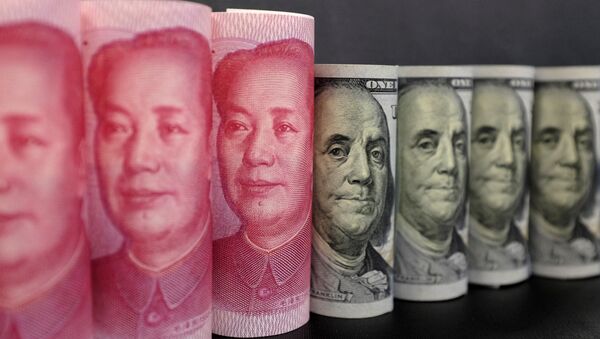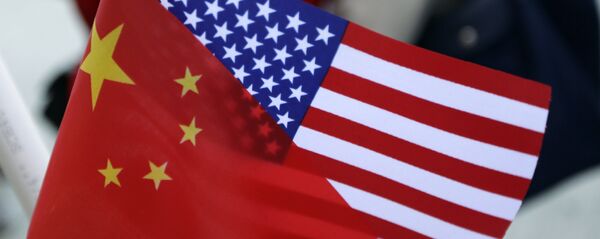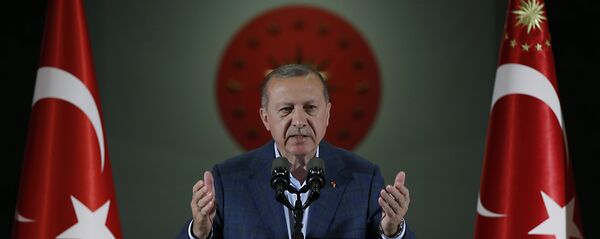Speaking at the United Nations General Assembly on Tuesday, POTUS stated that since China joined the World Trade Organization (WTO) in December 2001, it has wreaked havoc on the US economy.
"The United States lost over 3 million manufacturing jobs, nearly a quarter of all steel jobs and 60,000 factories after China joined the WTO," Trump told world leaders. "We have racked up $13 trillion in trade deficits over the last two decades."
"But those days are over. We will no longer tolerate such abuse. We will no longer allow our workers to be victimized, our companies to be cheated and our wealth to be plundered and transferred," he added.
Trump's statement, however, has some serious holes in it, Ewing told Radio Sputnik's Loud & Clear on Wednesday, stressing that "there's really no plunder."
Acknowledging that the US has had its fair share of job losses for some time now, Ewing told host Brian Becker that the unemployment rates are caused mostly by changes in productivity, such as jobs being replaced by machinery.
"Job losses are caused by job gains," he said. "Blaming trade for the cause of the decline of working class jobs, that's simply not true."
The US saw one of its highest ever rates of unemployment in 2008 after the subprime mortgage bubble burst in 2007, triggering a global financial crisis. The US' highest rate of unemployment following the crisis reached 10.2 percent, according to the Bureau of Labor Statistics. The current unemployment rate in the US is 3.9 percent.
By Wednesday, Trump had added onto his anti-China stance by accusing Beijing of interfering with the US' midterm elections.
"Regrettably, we found that China has been attempting to interfere in our upcoming 2018 election, coming up in November. Against my administration," Trump said at the opening of the United Nations Security Council.
"They do not want me or us to win, because I am the first president ever to challenge China on trade. And we are winning on trade. We are winning at every level. We don't want them to meddle or interfere in our upcoming election."
When asked whether Trump's claims hold up, Ewing told Becker that it "depends on what the president means by that."
"I think in the first round of sanctions… China retaliated by targeting what it identified as the base supporters of Trump, for example soybean farmers," he said. "They were targeted, and the Chinese sanctions had an immediate and really significant impact on soybean futures, so it hurt Trump's base."
"Clearly, China is thinking politically about how to have the most impact when… they retaliate against what the US is doing," Ewing added.
Trump's accusation was shrugged off by Chinese Foreign Minister Wang Yi, who told UN officials that China "did not and will not interfere in any country's domestic affairs. We refuse to accept any unwarranted accusations against China."



